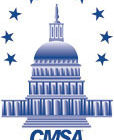In 2019, we ended our public policy calendar year at the annual conference in Las Vegas, with our Public Policy Forum focused on examining the federal government’s current landscape in Washington. At this time, the House is majority Democrat and the Senate majority Republican. During this time, few bipartisan projects move forward for healthcare bills supporting the professional role of case management and creation of resources needed to serve the patients and families we treat.
The CMSA Public Policy Committee chose to take a step back at that time and to reevaluate the goals and strategies for our group as we move toward the 2020 election. The Committee decided to shift CMSA Public Policy education, moving from a liaison model to an all-member webinar-based model to strengthen our state-focused legislation at the chapter level. As we move forward in 2019-2020, creating new alliances and collaboration at the state level has helped to strengthen the CMSA legislative agenda, allowing the committee to pool resources.
We are educating chapters about the Case Management Model Act and CMSA’s Standards of Practice for Case Management, revised 2016, defining the role of the professional case manager. Providing a better understanding of the Case Management Model Act and Standards of Practice allows chapters to know where to begin defining our profession in legislation. We seek to enhance both title protection for our role and to establish guidelines for professional resources needed to support the patients and families we serve across the continuum of care.
The CMSA Public Policy Committee goals for 2019-2020 are to:
- Promote the professional case managers by providing communication and educational resources for health policy issues related to case management professional practice
- Enable legislators and policymakers to better understand the role case management plays in healthcare advocacy and delivery
- Guide and support professional case managers in the development of tools and processes that will enhance their ability to educate and mobilize members in the public policy arena
- Educate professional case managers about public policy matters relevant to case managers.
Under the new all-member educational format, the membership is educated on the following topics, supporting the CMSA public policy agenda:
- Promote Case Management Model Act of 2017 and CMSA’s Standards of Practice for Professional Case Management, revised 2016 as the basis for development of legislation geared towards reducing healthcare costs, improving transitions of care, enhancing quality, and promoting better clinical outcomes. Advocate for a uniform Nurse Licensure Compact to provide flexible licensure support for new models of healthcare such as telehealth, ACO and medical model homes.
- Promote the Caregiver Act and HCP to support effective communication from the case manager at all levels of the continuum of care to the patient and families we serve.
- Monitor Opioid Crisis Act legislation and resources for case management to enhance the role of professional case managers working with opioid disuse syndrome and improve access to resources for clients challenged with opioid disuse diagnosis.
- Support the progress of the Medicare Coverage Act of 2017-2018, federal legislation which requires Medicare beneficiaries to be hospitalized for medically necessary care at both inpatient and observation level of hospital care for at least three consecutive days to be eligible, as well as cover post-hospital care in a skilled nursing facility.
- Understand the health impact of legalized vaping and marijuana and its effects in the healthcare industry.
- Collaborative case management legislation addressing the impact of workplace violence against the professional case manager for both RN and SW at all levels of the continuum of care.
Upcoming Public Policy Webinars include:
- March 25, 2020: 6-7 p.m. EST – The New Health Care Legislative Agenda: an overview of current healthcare legislation moving into 2020-2021, including a comparison of ACA, Medicare for all and Medicare Advantage programs
- April 15, 2020: 6-7 p.m. EST – Evolving the Public Policy Team: a lesson for the future advocacy, teamwork and strategies for 2021
In addition to policy monitoring and education, the Committee continues working toward the 2020 annual conference in Boston. Our presentation will focus on creating new collaborations with healthcare organizations to support legislation for professional case management as well as establishing coalitions to provide strength for supporting the CMSA public policy agenda.
The Public Policy Forum in Boston will further explore the new emerging models for national healthcare, examining public options, modified ACA, Medicare for all and Medicare Advantage programs. During this forum, the Committee will pave the way for all CMSA members to have education about these new proposals and feel confident to provide, as professional case managers, education for the patients and families we serve.
During the last two years, our committee has supported the National Coalition of State Board of Nursing with the campaign for Nurse licensure Compact assisting to move legislation from 34 to 50 states. In 2020, eight new states have submitted legislation and are actively hearing testimony. Both the AARP and ANA state organizations have joined several of the local coalitions working to pass legislation for the Nurse Licensure Compact and the Caregiver Act.
Our committee will be building momentum during this conference for preparation to return to Washington in fall of 2021 for the “Day on the Hill.” Once again, we will advocate for professional case managers and for resources for the patients and families we serve.
Remember that as professional case managers, the underlying premise of case management is that when an individual reaches the optimum level of wellness and functional capability, everyone benefits. These stakeholders include the individual client being served, the client’s family or family caregiver, the healthcare delivery system, the reimbursement source or payer, and other involved parties such as the employer and consumer advocates.
Title protection limits the use of a title unless the user meets the mandate regulated by state and federal regulations. The title “professional case management” serves as a means for achieving client wellness and autonomy through advocacy, ongoing communication, health education, identification of service resources and service facilitation.
Professional case management services are offered in a climate that allows client engagement and direct communication among the case manager, the client, the client’s family or family caregiver and appropriate service personnel, in order to optimize health outcomes for all concerned.


